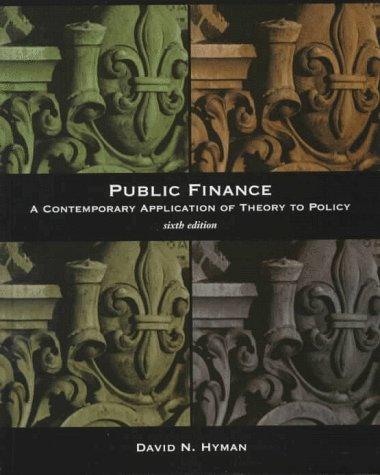Question
Your family business is expanding. Based on your experience and in-depth knowledge of the market, you have estimated the following results for the first 2
Your family business is expanding. Based on your experience and in-depth knowledge of the market, you have estimated the following results for the first 2 years (8 quarters) of the project.
Expected revenues for the first two years are as follows.
In addition, sales for the 1st quarter of Year 3 are projected at $370,000.
Year 1 (000s)
Q1 Q2 Q3 Q4
10 20 40 70
Year 2 (000s)
Q1 Q2 Q3 Q4
110 160 220 290
General and administrative expenses (wages, taxes, office etc.) are estimated to be 15% of sales.
Sales salaries and commissions are estimated to be 12% of sales.
Accounts receivable at the beginning of this expansion are $0.
Collection period = 30 days
Accounts payable at the beginning of the expansion are $0.
The Company quarterly purchases from suppliers = 40% of the next quarters forecasted sales.
Suppliers are paid on average in 45 days.
You will need to buy new equipment & furniture in both Year 1 Q1 and Q3 for $25,000 ($50,000 total in Year 1).
To help start the expansion you have secured an initial cash loan from the bank of $50,000. Interest on this loan is $1,500 per quarter. The company will pay back the full $50,000 in the Year 2 Q4.
Interest on any additional short-term borrowing is expected to be 2% per quarter. The company required return must be at least this each quarter.
The Company wishes to always maintain a $50,000 minimum balance to best manage its working capital and any unexpected commitments.
Question:
1.Based on the information above build a Cash Budget for the expansion. Use Appendix A
2. From above, does the company require any short-term financing? Explain.
a. If so, use the template in Appendix B to build a Short-Term Financing Plan.
Appendix A Cash Budget
Year 1 (000s)
Q1 Q2 Q3 Q4
Year 2 (000s)
Q1 Q2 Q3 Q4
Cash Collections
Beginning A/R
Sales
Cash (A/R) Collections
Ending A/R
Cash Disbursements
Beginning A/P
Purchases
Paid A/P
Ending A/P
Total Cash Outflows
Paid A/P
General & admin. expenses
Sales salaries & commissions
Capital expenditures
Loan Repayment
Loan Interest
Total cash disbursements
Net Cash Flows
Beginning cash balance
Total cash (A/R) collections
Total cash disbursements
Net cash inflow
Ending cash balance
Minimum cash balance
Cumulative surplus (deficit)
Appendix B - Short-Term Financing Plan
Year 1 (000s)
Q1 Q2 Q3 Q4
Year 2 (000s)
Q1 Q2 Q3 Q4
Beginning cash balance
Net cash flow Ending
Cash Balance (before borrowing or repayment)
Interest on exiting short-term borrowing
New required short-term borrowing
Short-term borrowing repaid
Ending Cash Balance (after borrowing or repayment)
Minimum cash balance
Cumulative surplus (deficit)
Beginning short-term debt
Change in short-term debt
Ending short-term debt
Step by Step Solution
There are 3 Steps involved in it
Step: 1

Get Instant Access to Expert-Tailored Solutions
See step-by-step solutions with expert insights and AI powered tools for academic success
Step: 2

Step: 3

Ace Your Homework with AI
Get the answers you need in no time with our AI-driven, step-by-step assistance
Get Started


